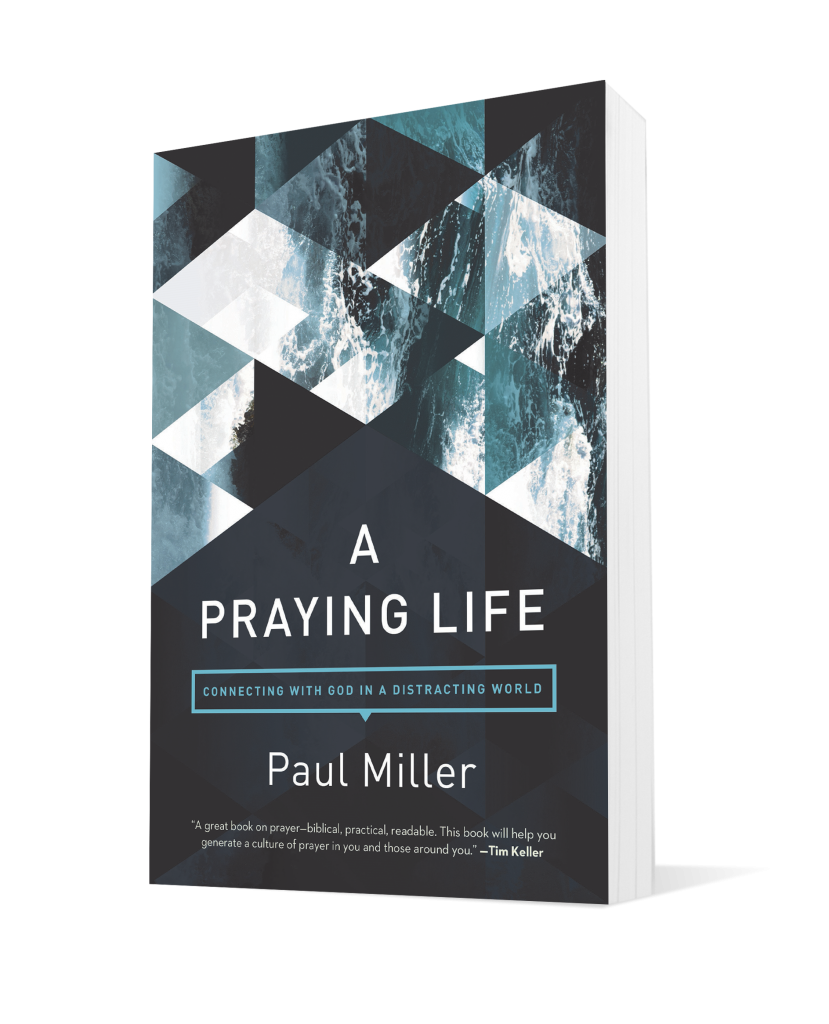Our natural desire to pray comes from Creation. We are made in the image of God. Our inability to pray comes from the Fall. Evil has marred the image. We want to talk to God but can’t. The friction of our desire to pray, combined with our badly damaged prayer antennae, leads to constant frustration. It’s as if we’ve had a stroke.
Complicating this is the enormous confusion about what makes for good prayer. We vaguely sense that we should begin by focusing on God, not on ourselves. So when we start to pray, we try to worship. That works for a minute, but it feels contrived; then guilt sets in again. We wonder, Did I worship enough? Did I really mean it?
In a burst of spiritual enthusiasm we put together a prayer list, but praying through the list gets dull, and nothing seems to happen. The list gets long and cumbersome; we lose touch with many of the needs. Praying feels like whistling in the wind. When someone is healed or helped, we wonder if it would have happened anyway. Then we misplace the list.
Praying exposes how self-preoccupied we are and uncovers our doubts. It was easier on our faith not to pray. After only a few minutes, our prayer is in shambles. Barely out of the starting gate, we collapse on the sidelines—cynical, guilty, and hopeless.
American culture is probably the hardest place in the world to learn to pray. We are so busy that when we slow down to pray, we find it uncomfortable. We prize accomplishments, production. But prayer is nothing but talking to God. It feels useless, as if we are wasting time. Every bone in our bodies screams, “Get to work.”

When we aren’t working, we are used to being entertained. Television, the Internet, video games, and cell phones make free time as busy as work. When we do slow down, we slip into a stupor. Exhausted by the pace of life, we veg out in front of a screen or with earplugs.
If we try to be quiet, we are assaulted by what C. S. Lewis called “the Kingdom of Noise.” Everywhere we go we hear background noise. If the noise isn’t provided for us, we can bring our own via smartphone.
Even our church services can have that same restless energy. There is little space to be still before God. We want our money’s worth, so something should always be happening. We are uncomfortable with silence.
One of the subtlest hindrances to prayer is probably the most pervasive. In the broader culture and in our churches, we prize intellect, competency, and wealth. Because we can do life without God, praying seems nice but unnecessary. Money can do what prayer does, and it is quicker and less time-consuming. Our trust in ourselves and in our talents makes us structurally independent of God. As a result, exhortations to pray don’t stick.
The Oddness of Praying
It’s worse if we stop and think about how odd prayer is. When we have a phone conversation, we hear a voice and can respond. When we pray, we are talking to air. Only crazy people talk to themselves. How do we talk with a Spirit, with someone who doesn’t speak with an audible voice?
And if we believe that God can talk to us in prayer, how do we distinguish our thoughts from his thoughts? Prayer is confusing. We vaguely know that the Holy Spirit is somehow involved, but we are never sure how or when a spirit will show up or what that even means. Some people seem to have a lot of the Spirit. We don’t.
Forget about God for a minute. Where do you fit in? Can you pray for what you want? And what’s the point of praying if God already knows what you need? Why bore God? It sounds like nagging. Just thinking about prayer ties us all up in knots.
Has this been your experience? If so, know that you have lots of company. Most Christians feel frustrated when it comes to prayer!
A Visit to a Prayer Therapist
Let’s imagine that you see a prayer therapist to get your prayer life straightened out. The therapist says, “Let’s begin by looking at your relationship with your heavenly Father. God said, ‘I will be a father to you, and you shall be sons and daughters to me’ (2 Corinthians 6:18). What does it mean that you are a son or daughter of God?”

You reply that it means you have complete access to your heavenly Father through Jesus. You have true intimacy, based not on how good you are but on the goodness of Jesus. Not only that, Jesus is your brother. You are a fellow heir with him.
The therapist smiles and says, “That is right. You’ve done a wonderful job of describing the doctrine of Sonship. Now tell me what it is like for you to be with your Father? What is it like to talk with him?”
You cautiously tell the therapist how difficult it is to be in your Father’s presence, even for a couple of minutes. Your mind wanders. You aren’t sure what to say. You wonder, Does prayer make any difference? Is God even there? Then you feel guilty for your doubts and just give up.
Your therapist tells you what you already suspect. “Your relationship with your heavenly Father is dysfunctional. You talk as if you have an intimate relationship, but you don’t. Theoretically, it is close. Practically, it is distant. You need help.”
You’ve been reading Paul Miller’s A Praying Life. Stay tuned for more next week or Continue reading here! A Praying Life: Connecting with God in a Distracting World has sold over 300,000 copies and just released a new edition with updated content.


This description of praying is right. It is exactly like you have told. We try to pray, but get distracted by our thoughts, quiet times with the Lord become shorter and shorter. Thank you for your insightful word.